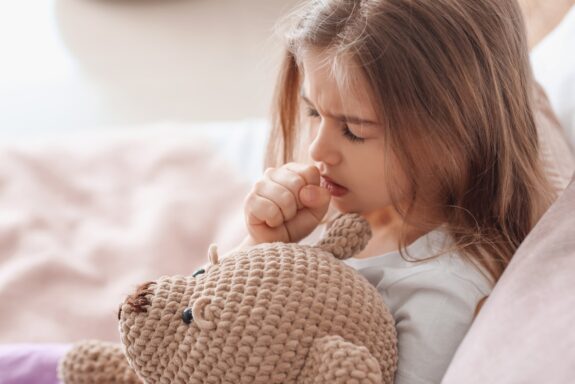
Summer fun is just around the corner with longer days, outside activities and warmer weather. With summertime, children play outside for longer periods of time and are at an increased risk for accidental injuries and heat-related illnesses. Parents and caregivers should remain on high alert and supervise children closely to these.
Here are some of the more common injuries that you should be aware of as your family enjoys a safe fun-filled summer:
Heat-related Injuries
Dehydration is one of the most common heat-related injuries, which occurs when the body does not have enough water. When our activities are increased and temperature outside is increased, the body loses more water. Plan ahead and if you’re going to be outside in the heat, encourage extra hydration, take frequent water breaks and plan for rest periods in shaded areas.
Heat Exhaustion/Heat Stroke can be a serious illness. Be mindful of the temperatures and avoid being outside for prolonged periods of time, especially in high temperatures. Avoid the hottest time of day which is usually between 2pm-4pm.
Sunburn is another common heat-related injury in children. Sunburn is caused by overexposure to the ultraviolet (UV) rays of the sun. Unfortunately, the symptoms of sunburn may not begin until two to four hours after the sun’s damage has been done. Teach your children the importance of practicing safe sun protection. Apply sunscreen 30 minutes before exposure to give it time to penetrate the skin. Most products need to be reapplied every three to four hours and reapplied after swimming or heavy sweating. SPF (sun protection factor) varies with different products. Select a sunscreen product that has 30 or more SPF and follow the manufacturer’s instructions closely. Most people apply too little sunscreen. Apply liberally and pay close attention to areas such as the nose, ears, cheeks and shoulders.
Water-related Injuries
Submersion Injuries- A child can drown in as little as two inches of water. Constant uninterrupted adult supervision should always be observed when any child is in or around water. Not only at swimming pools, but around anything that can hold water, such as bathtubs, toilets, ice chests, drainage ditches, rivers, ponds and wading pools.
Blunt-force injuries – Many injuries, including head injuries, fractures and lacerations occur on slick surfaces, especially near water and swimming pools. Children should not be allowed to run, skip or jump off the concrete surfaces near water or dive into shallow or dark water (rivers and lakes) where you can’t see what hazards are below the surface, avoid swimming during inclement weather and avoid crowded swimming spots where it is hard to monitor your children.
Playground-related Injuries
Playground Injuries- Slips and falls, cuts and bruises, sprains and fractures are common playground injuries. Accidents most often happen on climbing equipment, slides, monkey bars and swings. Ground cover under the equipment is very important. Inspect the ground cover underneath and around the equipment, avoid playgrounds with cement or dirt. The best ground cover for a playground is rubber or wood chips. Also inspect the area for broken glass, rusty nails and broken equipment.
Trampoline and Bounce House Injuries- Thousands of children are injured each year as a result of trampolines and bounce houses. They can fall off the trampoline, fall out of bouncy houses and be injured by collision with other children. Injuries can vary from minor to very serious. Head and neck injuries are the most serious. Strict rules should be established to prevent serious injuries to children. Recommendations include having an adult always present to monitor the children when they are bouncing. Trampolines should have a safety net surrounding them. Children should bounce one at a time in the enclosure. Do not let children bounce off the trampoline to the ground. In bounce houses, it is recommended that only one child bounce at a time, but if there is more than one child, they should be approximately the same size and weight. Keep trampoline or bounce houses away from trees, fences, poles or walls. Place them on a softer surface such as grass, avoid placing them on concrete, pavement or any hard surface.
Bicycle-related Injuries
Bicycle-related injuries — Soft tissue and musculoskeletal injuries are the most common injuries sustained from bicycle accidents. Head and neck injuries are the more serious bicycle injuries. Rider error, collisions with fixed objects and trying to avoid moving objects are the most common causes of bike accidents. Parks and bicycle trails are the safest areas for bike riding. Avoid busy areas, streets, sidewalks and steep driveways when riding bikes and always wear a helmet. Wearing a helmet reduces the chance of a head injury by 85% according to the Bicycle Helmet Safety Institute. Helmets should be worn at all times and be fastened correctly. The helmet should fit correctly and not move around on the head.
Summertime is the busiest season for accident-related injuries. Adult supervision is critical, especially near water an in large groups or crowded areas. During your child’s fun-in-the-sun activities, remember to apply sunscreen, encourage a lot of fluids to keep them hydrated and limit your child’s time in the heat, especially during the hottest time of day. Have a safe fun-filled summer!
Little Spurs Pediatric Urgent Care opened in 2006 in San Antonio, Texas. With multiple locations in San Antonio and Dallas, they are open seven days a week with extended evening hours and see walk-in patients or through an online check-in system. They accept most commercial insurance and Medicaid plans. More information about Little Spurs Pediatric Urgent Care can be found at www.littlespurspedi.com.



